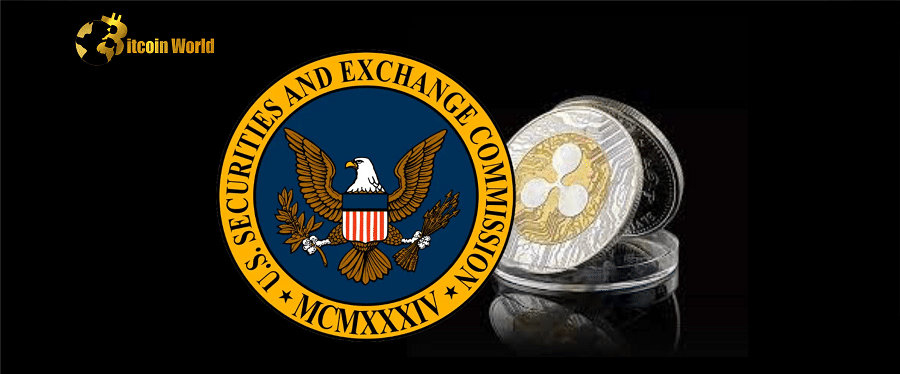The SEC stands for the United States Securities and Exchange Commission. It is a federal regulatory agency responsible for overseeing and enforcing securities laws in the United States. The SEC’s primary mission is to protect investors, maintain fair and efficient markets, and facilitate capital formation.
In the crypto world, the SEC plays a crucial role in regulating and overseeing certain aspects of the cryptocurrency industry. While cryptocurrencies themselves are not classified as securities, certain crypto assets, such as initial coin offerings (ICOs) and tokenized securities, fall under the SEC’s purview. The SEC considers tokens as securities if they meet the criteria defined by the Howey Test, which assesses whether an investment represents an investment contract and thus falls under the definition of a security.
The SEC’s role in the crypto world includes:
INVESTOR PROTECTION:
The SEC aims to protect investors from fraudulent activities, scams, and unfair practices within the cryptocurrency market. It provides guidance and educates the public about potential risks associated with investing in crypto assets.
REGULATORY ENFORCEMENT:
The SEC has the authority to take legal action against individuals or entities that violate securities laws, including those involved in fraudulent ICOs, unregistered securities offerings, or market manipulation.
PROVIDING REGULATORY CLARITY:
The SEC issues guidance and interpretations to help individuals and businesses understand how securities laws apply to cryptocurrencies and token offerings. This guidance helps industry participants to ensure compliance with regulations.
REGISTRATION OF SECURITIES OFFERINGS:
When a cryptocurrency or token is deemed a security, issuers are required to register their offerings with the SEC or qualify for an exemption from registration. This process ensures that investors receive the necessary information to make informed decisions.
MARKET INTEGRITY:
The SEC monitors the crypto market to ensure fair and efficient trading practices, detect potential market manipulation, and take enforcement actions if necessary.
It is important to note that regulatory approaches to cryptocurrencies may vary between different countries and regions. As the crypto industry continues to evolve, regulatory bodies like the SEC play a critical role in establishing a framework that balances innovation, investor protection, and market integrity.
Here are some fun facts about the SEC
ESTABLISHED IN RESPONSE TO THE GREAT DEPRESSION:
The SEC was created in 1934 as part of the Securities Exchange Act in response to the stock market crash of 1929 and the ensuing Great Depression. Its primary goal was to restore investor confidence and regulate the securities industry.
LOCATED IN WASHINGTON D.C.:
The SEC’s headquarters is situated in Washington D.C., the capital of the United States. It also has 11 regional offices spread across major cities to facilitate its regulatory activities and enforcement efforts.
JAY CLAYTON – THE LONGEST-SERVING CHAIRMAN:
Jay Clayton served as the Chairman of the SEC from May 2017 to December 2020, making him one of the longest-serving Chairmen in the history of the commission.
“SEC SPEAKS IN PLAIN ENGLISH”:
The SEC is known for making efforts to communicate complex financial and regulatory information in simple and understandable language. They launched a “Plain English” initiative in 1998 to make their documents more accessible to the general public.
THE EDGAR DATABASE:
The SEC operates the Electronic Data Gathering, Analysis, and Retrieval (EDGAR) system, which is a public database that contains all the regulatory filings submitted by companies, including annual reports, quarterly reports, and other financial disclosures.
WHISTLEBLOWER PROGRAM:
The SEC maintains a whistleblower program that rewards whistleblowers with money and legal protection for providing first-hand knowledge about securities law infractions that results in effective enforcement proceedings.
“HOWEY TEST”:
The SEC uses the “Howey Test” to determine whether an investment contract is a security. The test is named after the landmark Supreme Court case SEC v. W.J. Howey Co., which established the criteria to classify an investment as a security.
LARGEST FINANCIAL REGULATOR:
The SEC is one of the largest financial regulatory agencies in the world, overseeing a broad spectrum of participants in the securities industry, including public companies, brokerdealers, investment advisers, and mutual funds.
PROMINENT ENFORCEMENT ACTIONS:
Over the years, the SEC has taken significant enforcement actions against high-profile individuals and companies for securities fraud and other violations. These actions have led to notable settlements and penalties.
SOCIAL MEDIA PRESENCE:
The SEC maintains an active presence on social media platforms like Twitter, where it shares updates, news, investor alerts, and educational resources related to securities regulation and investor protection.
These fun facts showcase the SEC’s historical significance, its commitment to investor protection, and its role as a major regulatory authority in the financial world.
Disclaimer: The information provided is not trading advice, Bitcoinworld.co.in holds no liability for any investments made based on the information provided on this page. We strongly recommend independent research and/or consultation with a qualified professional before making any investment decisions.




